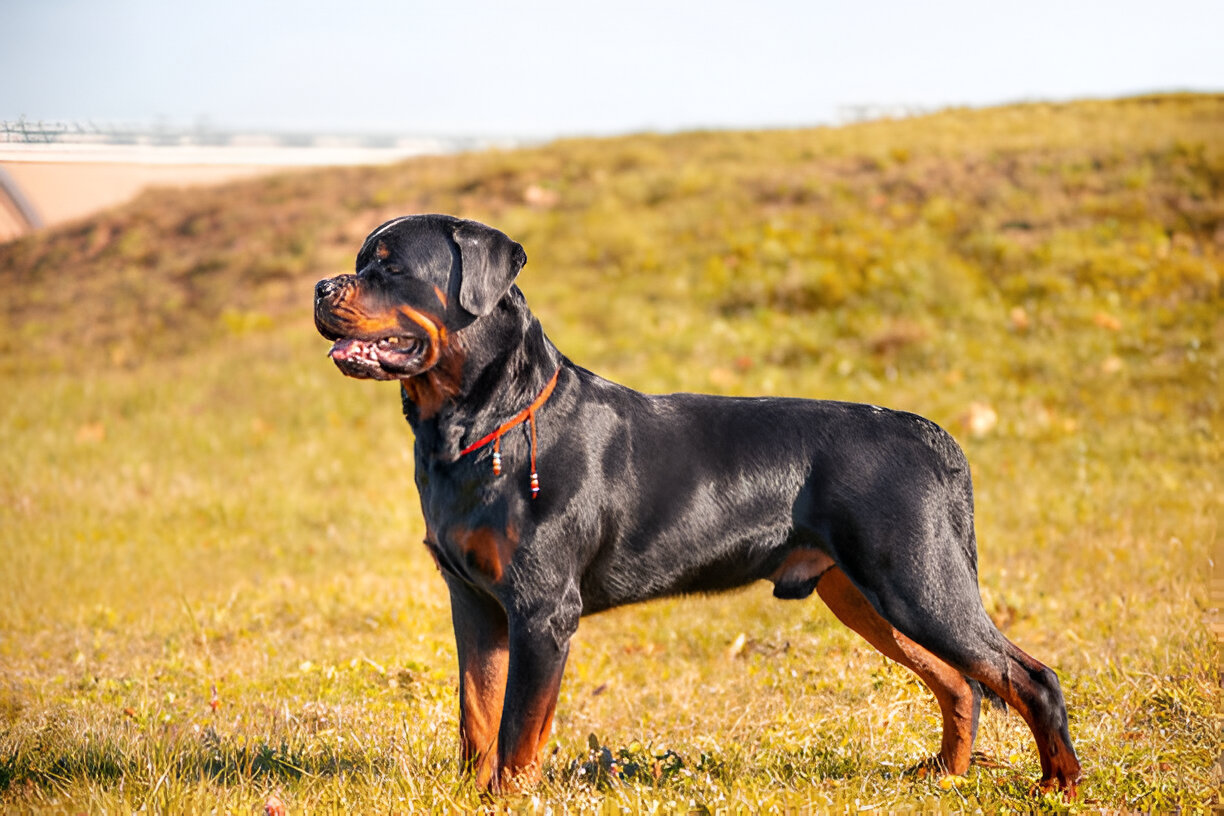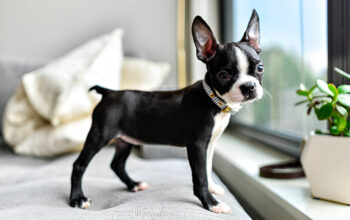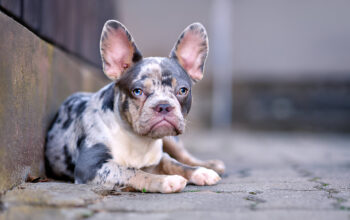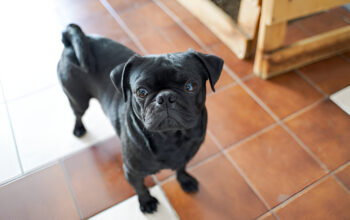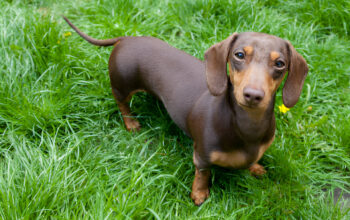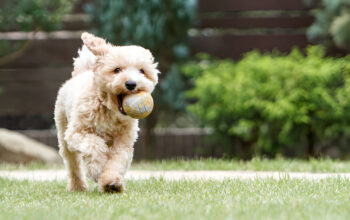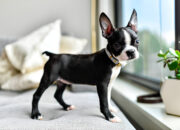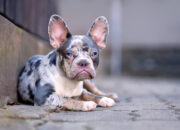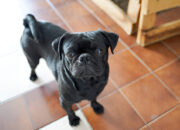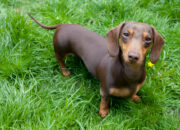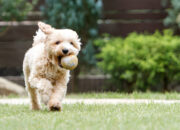Rottweiler Dog Breed – The Complete Owner’s Manual(2025 Facts & Care Guide)
Rottweiler: A Mighty Good Dog!
The Rottweiler is a strong, loyal working dog who has truly enabled its way into the hearts of dog lover’s globally. Unfortunately, these dogs are so often misjudged despite their intimidation, but in reality are big softies when raised and trained appropriately.
Rottweilers Have an Interesting Past
Ancient Roman Roots
Today’s Rottweilers are descended from Roman Empire dogs for pulling carts and for driving cattle and from the mastiffs the Romans owned and bred with dogs of Germanic tribes as the Romans crisscrossed Europe. These dogs were utilized as:
- Herding livestock for the food source
- Guard military camps at night
- carry small carts of goods
Development in Germany
Once the Romans were gone from Germany, these dogs found their own home in Rottweil, and developed into:
- “Rottweil Metzgerhund,” or Butcher’s Dog of Rottweil
1.Primary roles included:
- 2.Driving cattle to market
- 3.Pulling butcher’s carts
4.Watching over money pouches (butchers had to tie their money on their neck)
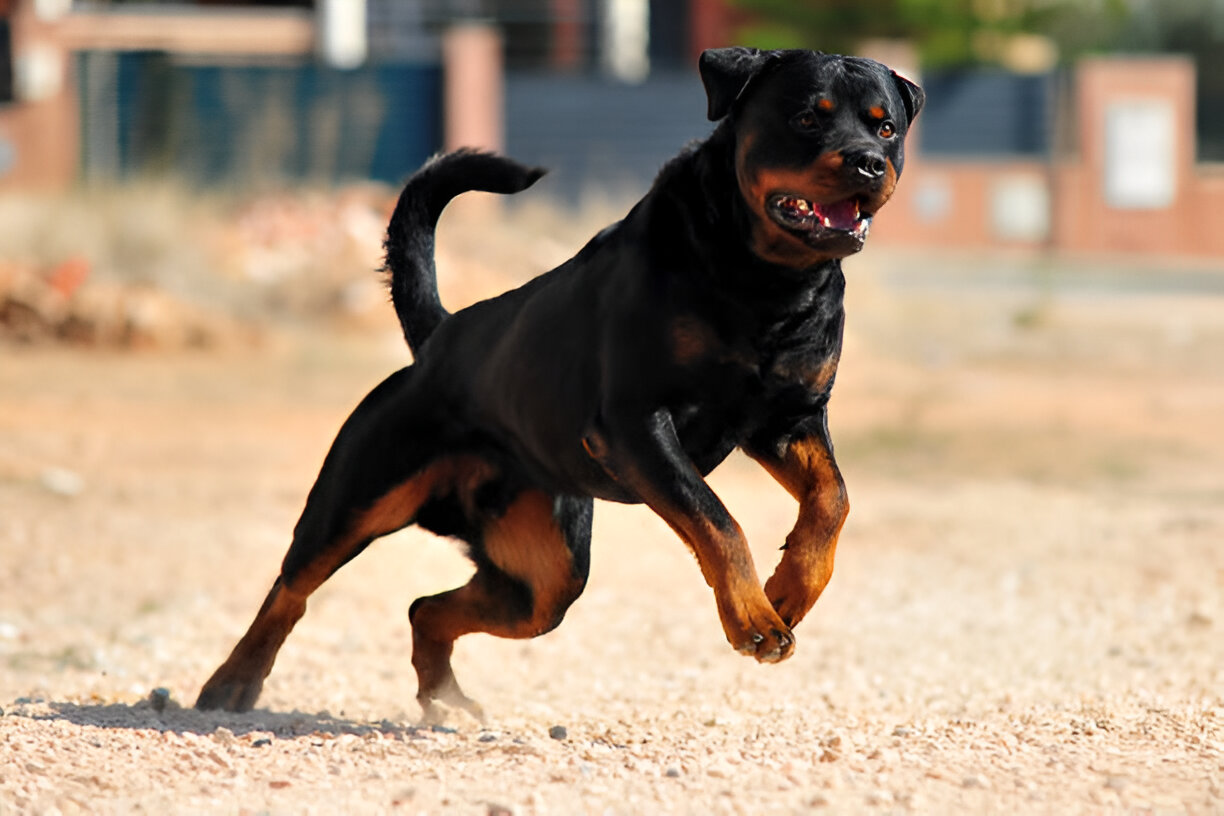
Contemporary Recognition & Accolades
- 1901: Introduction of the first Rottweiler club in Germany
- 1931: AKC recognized official You might also like: Older Newer Next Story?
- 1990s: Second most registered AKC breed
- 2024: Consistently Top 10 most popular breeds
Present Working Statuses
Today’s Rottweilers excel as:
- Police & military dogs (because their bite force is 328 pounds per square inch)
- Search and rescue dogs
- Therapy & service animals
- 56751_FSGL_AndreaRunolfsson_090527_TrackingCompetitive sport dogs (schutzhund, agility)
- Family guardians & companions
Construct \& Breed Standards
Size & Weight Requirements
Gender Height (inches) Weight (lbs) Body Type
Male 24-27 95-135 Strong, muscular
Les Femmes 22-25 80-100 Strong yet Feminine
Note: OverSized “King Rotts” are not the breed standard and will have health issues
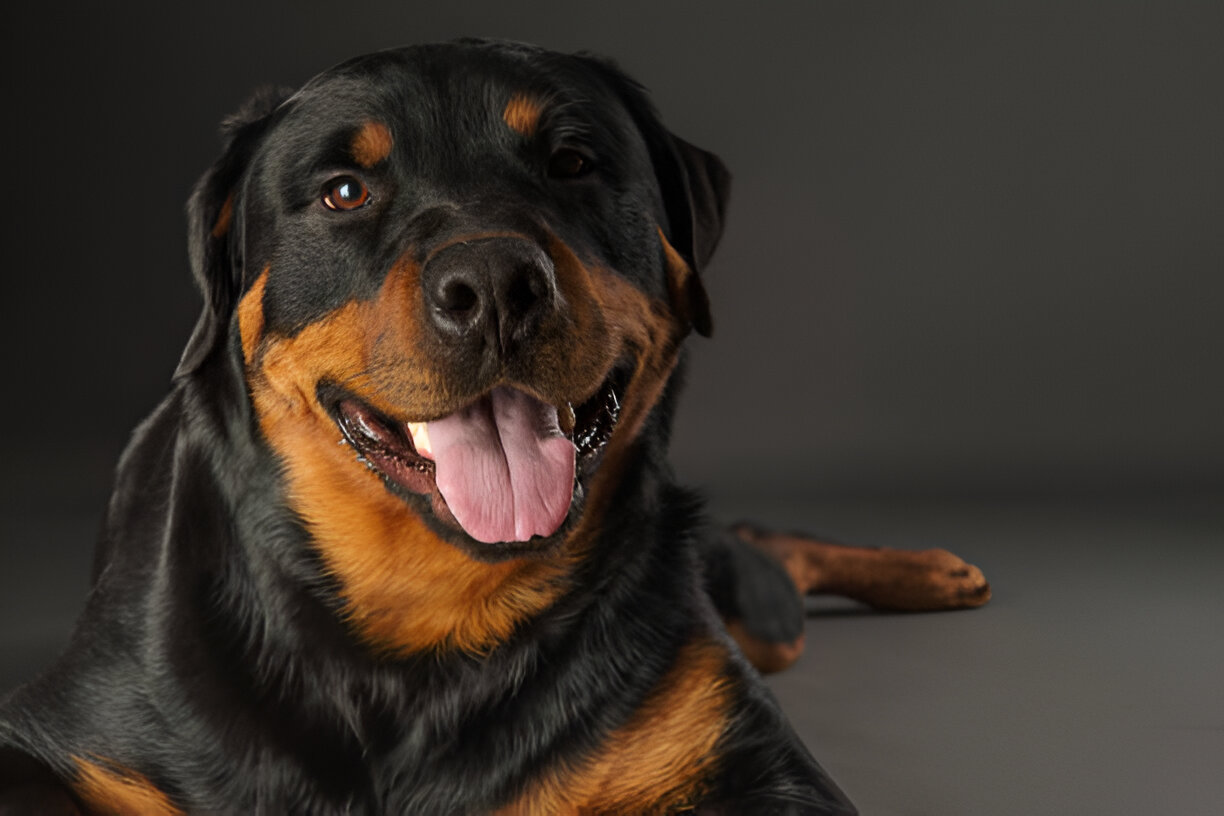
Coat & Color Genetics
Length: Short, straight, and lying close, with dense undercoat.
Official Colors:
Kennel founders Ruth and Bill Hines had intially believed that their breed would be solid black, but they soon learned that they also came with red-brown to mahogany colored points.
Markings must appear:
- Over each eye
- On cheeks
- On muzzle
- On chest and legs
- Below tail
Disqualifications:
- Any white markings
- Long or wavy coats
- Blue or liver colors
Distinctiveness of Physical attractiveness as a predictor.
- Skull: Skull wide between ears, stop well defined
- Eyes: Medium size, Almond-eyed shaped (preferred dark brown)
- Ears: Triangular, hanging( in there)
- Body: Exquisite depth of chest with no suggestion of legginess, and a level topline
- Tail: Docked (where allowed by law) or natural
- Feet: Tight, well-arched toes, on the small side for digging into snow.
Rottweiler Temperament and Personality
Core Personality Traits
- Confidence: An air of self assuredness - Athletic!
- Bravery: Will defend family without regard to personal safety
- Intelligence: They are one of the smartest dog breeds (in the top 10%)
- Loyalty: Develops very strong bonds with its family
- Temperament Calmness: Steady Keeping calm in their nature when well-bred; a fault to be punished when observed in others.
Why Being Protective is Better politically
- Rottweiler’s Three Stages of Protection Rottweilers have three levels of protection:
- Warning: Can and will get suspicious of strangers.
- Role: They put themselves between danger and family
- Active: In case of absolute necessity only
The best growth is that which keeps them manageable at every stage.
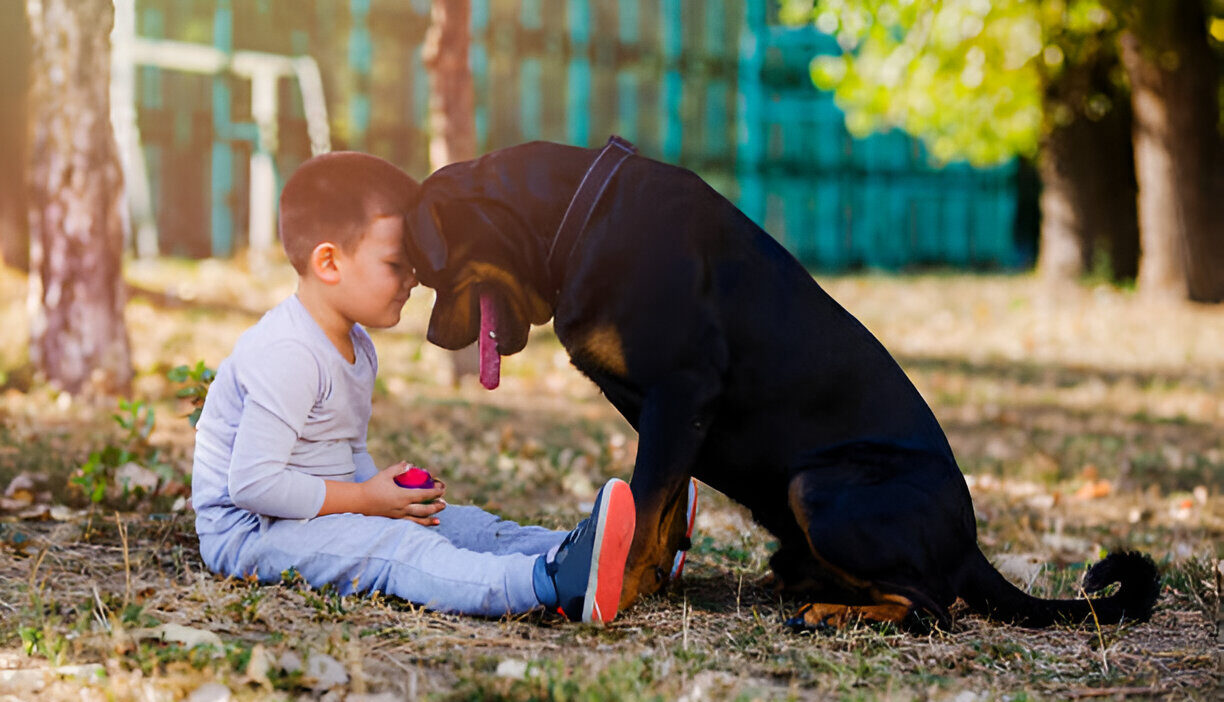
Are Rottweilers Good Family Dogs?
✅ Excellent when:
- Came up with kids from a puppy
- Properly socialized
- Given clear leadership
⚠️ Potential issues when:
- Not trained consistently
- Left alone for long periods
- Not exercised sufficiently
Compatibility Chart
| Living Situation | Suitability (1-5★) | Notes |
|---|---|---|
| Families with kids | ★★★★☆ | Best with older children |
| First-time owners | ★★☆☆☆ | Needs experienced handler |
| Apartments | ★★☆☆☆ | Possible with sufficient exercise |
| Active singles | ★★★★★ | Great jogging/hiking partners |
| Seniors | ★★☆☆☆ | May be too powerful |
Life Span & Health concerns
Life Expectancy Averages
- 8-10 years (typical)
- 10-12 years (if taken good care of)
The contemporary study of longevity is:
- Cancer prevention
- Joint health maintenance
- Cardiac screening protocols
Global health worries
1.Orthopedic Issues
- Canine hip dysplasia (occurring in roughly 20% of Rotts)
- Elbow dysplasia
- Cruciate ligament tears
2.Cardiac Conditions
- Subaortic stenosis (SAS)
- Dilated cardiomyopathy
3.Cancer Risks
- Osteosarcoma (bone cancer)
- Lymphoma
- Hemangiosarcoma
4.Neurological Disorders
- Degenerative myelopathy
- Epilepsy
- Other Concerns
- Bloat (GDV)
- Eye problems (entropion, PRA)
- Allergies
H3: Diets & Preventative Plan
Nutrition:
- Best Large Breed Puppy Food For Labs (up to 2 years)
- Joint supplements for adult formula
- Caloric control to prevent obesity
Exercise:
- Structured exercise regimen
- Do not over jump a young puppy
- Swimming Swimming is a good, low-impact exercise for people with arthritis.
Medical:
- OFA hip screen on breeding dogs
- Yearly cardiac screens at >5 years of age
- Regular cancer screenings
- Preventive surgery for bloat
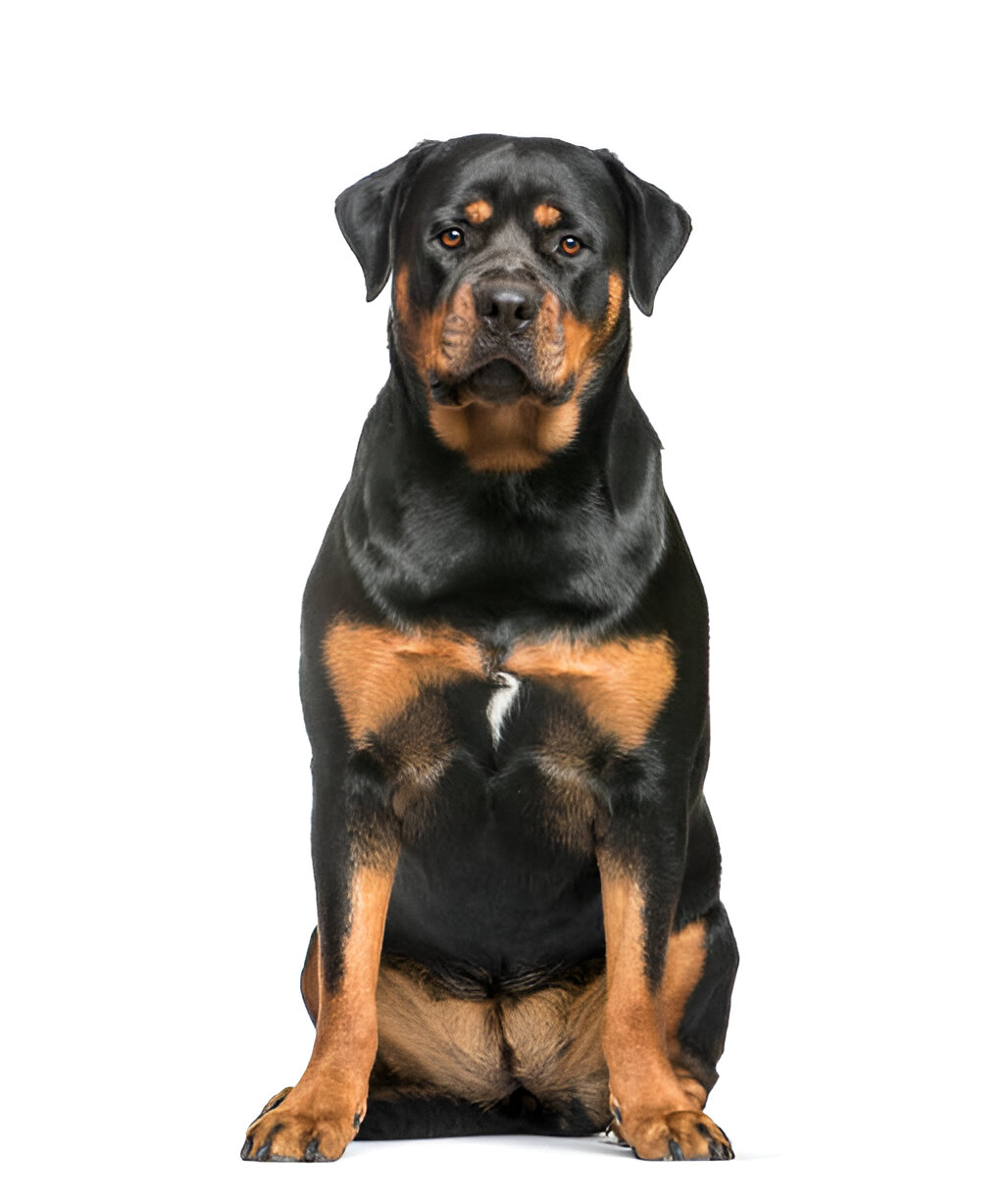
Training & Socialisation Manual
Critical Training Periods
AgeFocus8-12 weeks* Socialization foundation3-6 months* Basic obedience6-18 months* Advanced training2+ years* Specialized work (optional)
Important Rottweiler Commands
- Place – redirect to specific location
- “Leave it” - A must for impulse control
- “Heel” – Good walking manners
- “Out” - Release Now.
- “ENOUGH” - STOP barking/guarding.
Socialization Checklist
- Expose puppies to:
- Different people (age,ethnicity,uniforms)
- All kind of animals (dogs, cats, cattle, etc..).
- Environmenal (traffic/crowds/noise)
- Grooming (brushing, vet visits)
Advanced Training Options
- Protective work (with professionals only)
- Nose work/scent detection
- Therapy dog certification
- Competitive obedience
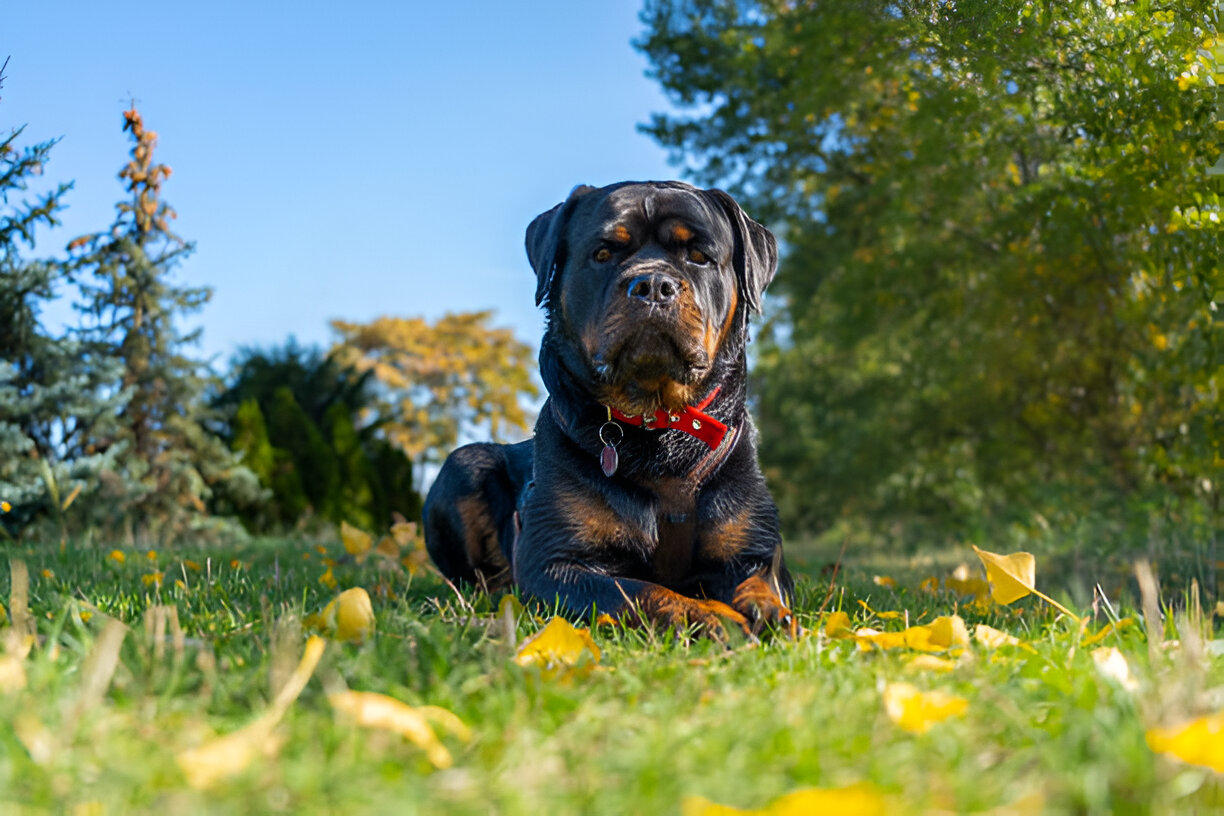
Grooming & Maintenance
Complete Grooming Routine
Weekly:
- Brush with rubber curry brush
- Wash with vet approved solution in ears
- Trim and check nails if necessary.
Monthly:
- Brushing with undercoat rake in detail
- rushing of teeth with enzymatic tooth paste
- Examination of the paw pads and hair trimming
- Quarterly:
- Grooming from a pro (if you like)
- Expression of anal glands (if necessary)
Shedding Management
- Seasonal Bathers: Major shedders in spring/fall
- Daily hair loss: Average, all year long
- Tools recommended:
- Furminator deShedding tool
- ZoomGroom rubber brush
- Blaster dryer (for deep clean) High velocity-machine.
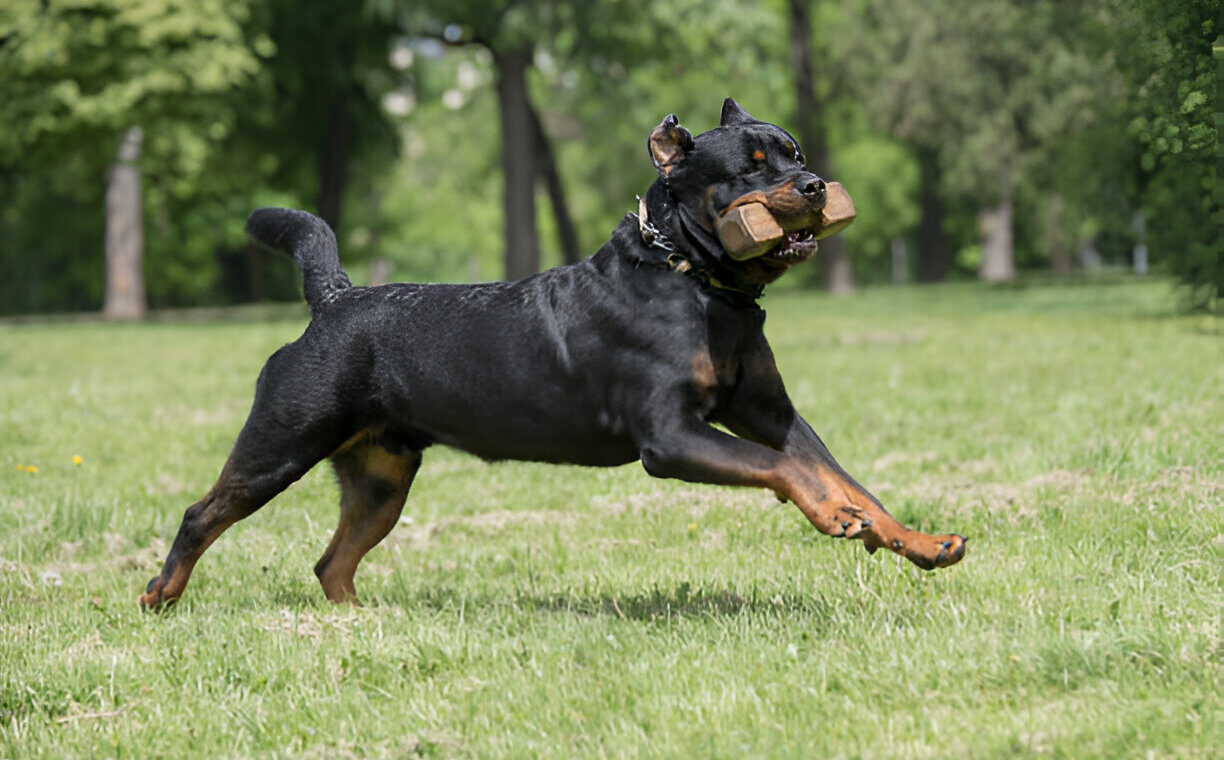
Nutrition & Diet Plan
Feeding Guidelines by Age
| Life Stage | Daily Calories | Protein % | Fat % |
|---|---|---|---|
| Puppy (2-12 mo) | 1,800-2,400 | 26-28% | 14-16% |
| Adult (1-7 yrs) | 1,500-2,000 | 24-26% | 12-14% |
| Senior (7+ yrs) | 1,200-1,600 | 26-28% | 10-12% |
Best Commercial Foods (2025)
- Royal Canin Rottweiler Adult
- Purina Pro Plan Large Breed
- Hill’s Science Diet: Large Breed
Homemade Diet Recipe
Sample Meal (for 100 pound adult):
- 1 lb lean ground beef (90/10)
- 2 cups cooked brown rice
- 1 cup assorted mixed vegetables (carrots, green beans)
- 1 tbsp fish oil
- 1 teaspoon turmeric (to help with inflammation)
- Vitamin/ mineral supplement (balanced)
Finding Your Rottweiler
Choosing a Resposible Breeder
Red Flags:
- litters all the time
- No health testing proof
- Not allow you to see parent dogs
Green Flags:
- OFA Hip, Elbow, and Heart certifications
- Dogs (conformation,working) in titles
- Lifetime take-back guarantee

Adoption Options
Rescue Organizations:
- Rottweiler Rescue Foundation
- American Rottweiler Club Rescueienie and Mediation Service of the DRK9 Club and aimed at rescuing retraining and re socializing Rottweilers in need.
- Local breed-specific rescues
Shelters:
- Check Petfinder.com regularly
- Be braced for behavior problems
FAQ (2024 version)
Are Rottweilers Banned in Anywhere?
Yes and a few other places:
- Some cities in Iowa, Colorado and Washington
- United Kingdom (in certain circumstances)
- Portugal and Romania
Can Rottweilers Be Left Alone?
Not suggested for over 4-6 hours with:
- Separation anxiety potential
- harmful effects of boredom
Differences between Male and Female Temperament
Trait Male Female
Size Larger Smaller
Dominance More assertive Slightly easier
Protection Territorial More nurturing
Training Slower maturity Faster learners
Recap – Is a Rottweiler the Perfect Dog for Me?
Best For:
✔ Experienced dog owners
✔ Active households
✔ Those needing protection
✔ People who enjoy training
Not Recommended For:
✖ First-time owners
✖ Sedentary lifestyles
✖ Antisocials
